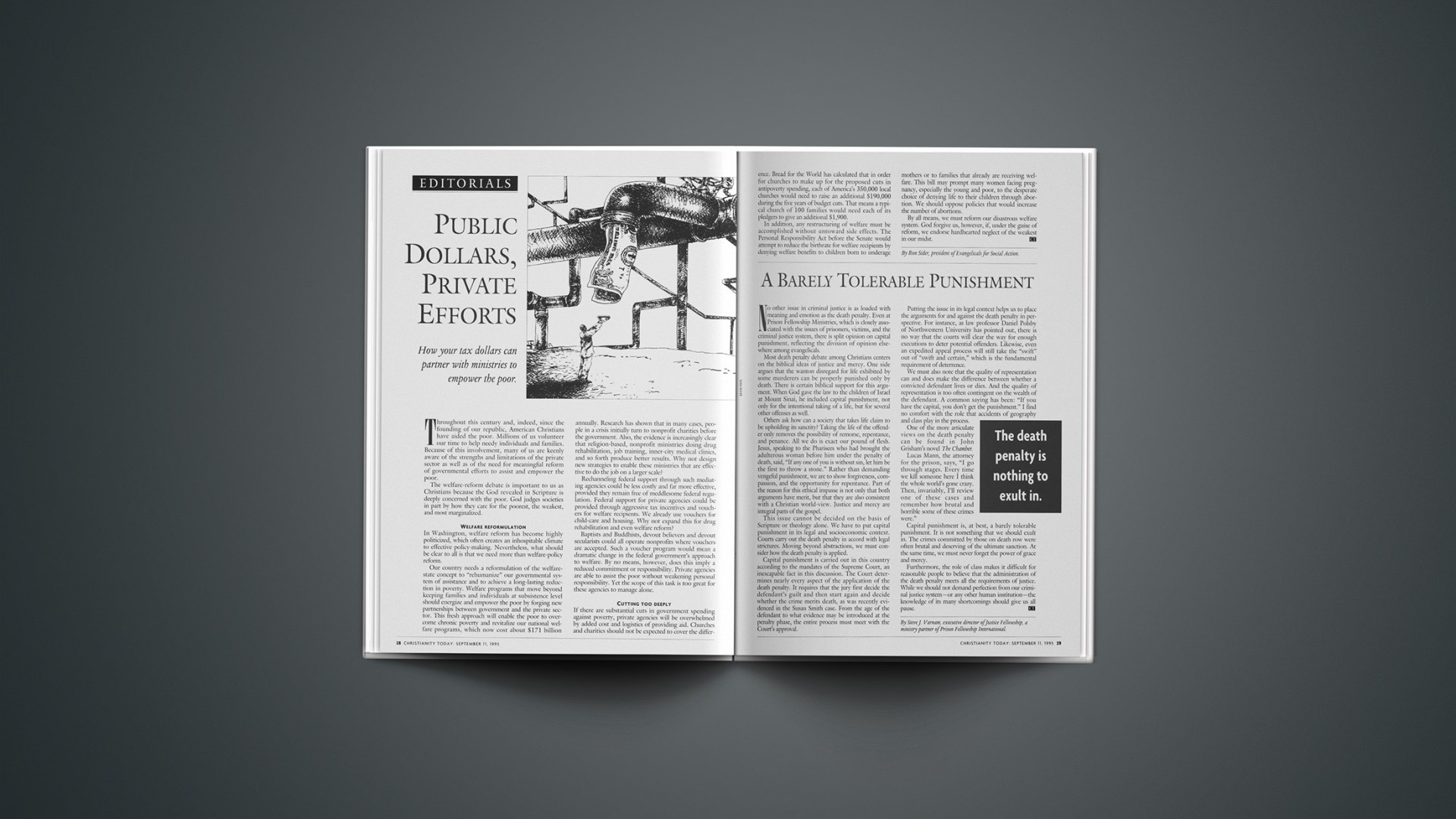No other issue in criminal justice is as loaded with meaning and emotion as the death penalty. Even at Prison Fellowship Ministries, which is closely associated with the issues of prisoners, victims, and the criminal justice system, there is split opinion on capital punishment, reflecting the division of opinion elsewhere among evangelicals.
Most death penalty debate among Christians centers on the biblical ideas of justice and mercy. One side argues that the wanton disregard for life exhibited by some murderers can be properly punished only by death. There is certain biblical support for this argument. When God gave the law to the children of Israel at Mount Sinai, he included capital punishment, not only for the intentional taking of a life, but for several other offenses as well.
Others ask how can a society that takes life claim to be upholding its sanctity? Taking the life of the offender only removes the possibility of remorse, repentance, and penance. All we do is exact our pound of flesh. Jesus, speaking to the Pharisees who had brought the adulterous woman before him under the penalty of death, said, "If any one of you is without sin, let him be the first to throw a stone." Rather than demanding vengeful punishment, we are to show forgiveness, compassion, and the opportunity for repentance. Part of the reason for this ethical impasse is not only that both arguments have merit, but that they are also consistent with a Christian world-view. Justice and mercy are integral parts of the gospel.
This issue cannot be decided on the basis of Scripture or theology alone. We have to put capital punishment in its legal and socioeconomic context. Courts carry out the death penalty in accord with legal strictures. Moving beyond abstractions, we must consider how the death penalty is applied.
Capital punishment is carried out in this country according to the mandates of the Supreme Court, an inescapable fact in this discussion. The Court determines nearly every aspect of the application of the death penalty. It requires that the jury first decide the defendant's guilt and then start again and decide whether the crime merits death, as was recently evidenced in the Susan Smith case. From the age of the defendant to what evidence may be introduced at the penalty phase, the entire process must meet with the Court's approval.
Putting the issue in its legal context helps us to place the arguments for and against the death penalty in perspective. For instance, as law professor Daniel Polsby of Northwestern University has pointed out, there is no way that the courts will clear the way for enough executions to deter potential offenders. Likewise, even an expedited appeal process will still take the "swift" out of "swift and certain," which is the fundamental requirement of deterrence.
We must also note that the quality of representation can and does make the difference between whether a convicted defendant lives or dies. And the quality of representation is too often contingent on the wealth of the defendant. A common saying has been: "If you have the capital, you don't get the punishment." I find no comfort with the role that accidents of geography and class play in the process.
One of the more articulate views on the death penalty can be found in John Grisham's novel "The Chamber."
Lucas Mann, the attorney for the prison, says, "I go through stages. Every time we kill someone here I think the whole world's gone crazy. Then, invariably, I'll review one of these cases and remember how brutal and horrible some of these crimes were."
Capital punishment is, at best, a barely tolerable punishment. It is not something that we should exult in. The crimes committed by those on death row were often brutal and deserving of the ultimate sanction. At the same time, we must never forget the power of grace and mercy.
Furthermore, the role of class makes it difficult for reasonable people to believe that the administration of the death penalty meets all the requirements of justice. While we should not demand perfection from our criminal justice system—or any other human institution-the knowledge of its many shortcomings should give us all pause.
Copyright © 1995 Christianity Today. Click for reprint information.
ctcurrmrw5TA019595y










